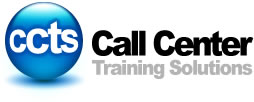Service and support centers are unique when it comes to sales. Many centers have introduced sales and sales quotas long after the service element has been cemented into the minds of the telephone associates (customer service reps). “I wasn’t hired to sell,” or, “Pushing products on callers isn’t providing excellent service,” are common complaints.
To exacerbate the problem, many supervisors do not reinforce sales. Rather, they spend their floor time solving associates’ problems, taking escalated calls, approving credit requests and more. Although these are important issues, center management has to make sales a top priority. Coaching sales is where it begins. Try the following tips to improve your center’s sales.
Tip No. 1: Emphasize the priority (not just the importance) of sales results.
Senior management in a call center must stress the importance of sales in a variety of communications to the rest of the center. They should also emphasize that sales is going to remain an integral part of how telephone associates and floor supervisors and managers are measured. Stress to the center that sales is both something that is good for the customer.
Most centers have research that shows that customers want to know more about the products that they offer. Although it is important to take a value-oriented approach to making sales a priority, it is also critical to measure and track sales. One without the other tends to fail.
Tip No. 2: Eliminate certain phrases from associates’ vocabulary.
This may sound a bit extreme, but it isn’t. Too many associates in inbound service centers say, “I wasn’t hired to sell.” It is imperative to remove these insubordinate phrases from what is acceptable conversation within a center.
Each floor supervisor must tell his/her associates, “Since sales is now part of the expectation, do not tell me that you ‘weren’t hired to sell,’ or that ‘selling isn’t servicing’. Now that sales is part of what we do, that’s the same as saying, “I won’t sell. And that is not something that you want to say in our center.”
Tip No. 3: Build real sales quotas.
Nothing says “sales is important” like sales quotas. And it isn’t enough to give a team quota only. Each telephone associate must be responsible for a certain amount of sales or your center really isn’t taking sales seriously.
The best way to generate sales is to make it a part of each telephone associate’s expectation. Sure, there will be grumbling and you may lose a few folks that are afraid of their own potential and will refuse to sell. Every center goes through it, but the results are worth it.
Tip No. 4: Create product-specific quotas.
If you have already established a sales quota for each telephone associate, you may want to consider the next step. If your center sells different product lines, you can establish quotas for the more important ones, especially if some important products are lagging behind in sales.
We realize that some products simply don’t sell, or are priced out of the market, but establishing quotas for these products will force telephone sales people to mention them to callers, which they very likely are not doing now. Once you are effectively measuring offer rates, you will be able to tell for certain that the problem is the product, rather than the lack of sales offers.
Tip No. 5: Offering real compensation is a must.
If yours is the only call center in town and jobs are scarce, then you really don’t have to offer the telephone associates a compensation plan. But you still should do so. Commission plans stress the importance of sales and they let associates know that they will be compensated like real sales people get compensated.
Too often a call center will add selling to the associate’s expectation, even enforcing a quota, but then will not pay the associates for making the sales. Associates grow to resent this, and rightly so. Additionally, it won’t be long before these same associates are working for your competitors. They will be making sales using the skills they learned at your center, but your competitor, who offers a commission plan, will be the beneficiary. Contests and incentives are also not enough. These should be done in addition to a real compensation/salary package. Although it seems like you will pay too much for each sale, consider the cost of hiring and training new associates.
Tip No. 6: Differentiate (through training) between floor sales coaching and floor problem-solving.
There is a big difference between these two activities. In a service center that is just learning sales, chances are that your supervisors are out on the floor problem-solving. This means that they are answering questions, taking escalated calls, making credit request approvals, taking over for associates who don’t know/don’t remember how to access a certain system screen, etc.
True floor sales coaching means going out on the floor and listening, observing, giving feedback and other types of coaching, focused completely on how well associates are demonstrating sales skills. “I can’t seem to get them out there on the floor, except to answer the reps’ questions. They won’t get proactive,” was a comment we heard recently from a new client. This problem exists in many inbound centers. The trick is to differentiate between problem-solving and real sales coaching, and then to build a plan to get supervisors out on the floor a whole lot more of the time, conducting sales coaching.
Tip No. 7: Build a sales coaching schedule.
We know from experience that simply lecturing to supervisors to get out on the floor to do more sales coaching just doesn’t work. Whether they are afraid to do it, don’t know how to do it, or just like what they do today instead, you cannot just tell them to do it.
We always encourage our clients to build a schedule for each floor supervisor/manager to be on the floor with official sales coaching times, usually one to two hours per day. During this time no one can take them away from their coaching and observing. If an associate approaches them, they are instructed to say something like, “Hey Steve, I can’t answer that right now. I’m in the middle of my coaching time. See if you can find that answer some other way. If not, go ahead and check back with me after 3:00 p.m. when I’m done here. Okay?” Initially it will seem silly to most people to say that. By the time you say all that you could have answered the question, right? Yes, but then the next question will come, and the one after that, and then you’ll have to handle an escalation request, and so on.
The point is, build a rock-solid schedule. Tell the associates about it and how they should behave during that time when they have questions or problems. The call center manager/director must enforce this as well. When all these things take place, you will see your sales increase rapidly. This is actually one of the easiest ways to increase sales, even without any additional training.
Tip No. 8: Inform associates as to how the scheduled floor time is to take place.
In some centers we have heard, “Well, since we’re already supposed to be out on the floor coaching, there isn’t any reason to tell the associates anything new.” We disagree. If your floor supervisors have not been conducting true sales coaching up to this point, we strongly recommend that you inform the sales associates as to the new approach you’re going to take. In your letter, memo, e-mail or speech, we would stress that floor sales coaching time is one of the best ways to help the associates grow, learn and develop their communication skills.
Additionally, it really does help sales increase, one of the priorities of your center. In the communication we also recommend informing the associates of the actual schedule and that, when their supervisor is on the floor during that time, they aren’t allowed to approach him/her. Instead, call a support person, check the on-line help, consult your manuals, etc. Remind them that this is truly for their gain and things should go very well.
Tip No. 9: Build sales steps into the QA analysis.
Most centers have a team of Quality Analysts, or “QAs.” In order to make sales a priority, ask the QAs to listen for sales skills being demonstrated by the associates. These can become great, and very positive, coaching opportunities. It is very important to train the QAs in the actual steps of your sales skills, whether you use Directional Selling or something else. A QA must be able to hear, for example, an associate trying to overcome a caller’s objection, and know whether or not the associate used the steps that she learned in training.
Here is another tip if your QAs use a point system to assess telephone calls. Raise the percentage of points that can be associated to sales so that it reflects the importance of sales in your center. In one center that we worked with, all seven sales steps were measured. But even if the associate failed all seven steps, that only counted as 10 points out of a possible 100 on the call. The associates could actually make no sales attempts and still hit top numbers. Make sales 35-50% of the each call’s value and you will begin hearing more sales attempts.
Tip No. 10: Toughen up your floor supervisor/manager regiment.
In general, the majority of floor supervisors are too far down the “soft” scale. Although some are also on the “too tough” side, most are not. Many supervisors will not just let things go when performance targets aren’t met, they will actually make up excuses for the associates who failed. “Well, I realize this product is tough to sell, but just keep at it. Who knows? Maybe some day they will ask us not to sell it anymore.”
Train your managers in why it is important, and humane, to hold people accountable for the things that they are supposed to do, like selling. Too many floor supervisors will protect associates who do not sell, despite the demands from upper management. These supervisors do no favors for those associates because the associates will not improve or grow in any way. If life is a learning experience we must teach the lessons. We help people when we show them that they must be responsible for whatever they have committed to doing.
Tip No. 11: Train the floor supervisors in selling.
If we expect to see supervisors out on the floor coaching sales skills, we must train them in the same selling skills received by the associates. If not, can you really expect them to give very precise feedback after observing a call. After participating in Managing Directional Selling, a supervisor will be able to say to an associate, “You know, I really liked when you used that B.A.T. Statement about the European Vacation Pass. Your Application focused on her kids being away at college.
That was great. On future calls, you may also want to first ask a Quick-Question, like, “If you could travel to Denmark or Sweden, which one would you choose? That would have helped you narrow down the best country package to offer.” Training the supervisors in the same selling skills will make their coaching events more useful to the associates and the supervisors that have never sold before will coach with confidence.

